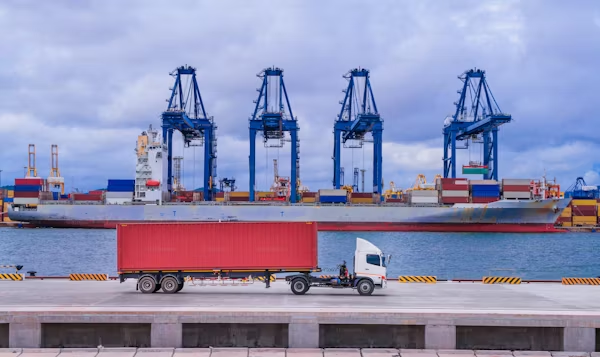The Growing Demand for Transportation and Logistics Jobs: A Comprehensive Guide
Transportation and Logistics Jobs
Transportation and Logistics Jobs: The global economy relies heavily on logistics and transportation. These industries are in charge of safely and effectively transporting people, products, and commodities across borders, nations, and continents. The need for qualified individuals in transportation and logistics is growing as e-commerce keeps expanding, manufacturing industries expand, and supply chain management gets more complicated. The different career options in the transportation and logistics industries, the necessary skills, and the prospects for those who are thinking about pursuing a career in this fast-paced field will all be covered in this article.

1. Understanding the Transportation and Logistics jobs Sectors
Before diving into job opportunities, it is crucial to understand what transportation and logistics jobs entail.
- Transportation refers to the movement of goods and people from one location to another. This can involve various modes, including air, sea, rail, and road transport.
- Logistics, on the other hand, encompasses the planning, implementation, and management of the efficient movement and storage of goods. It is a broader field that integrates transportation, warehousing, inventory management, packaging, and supply chain management.
Together, these sectors form the backbone of the global economy by ensuring the timely and safe delivery of products to consumers, businesses, and industries.
2. Types of Transportation and Logistics Jobs
The transportation and logistics fields offer a wide range of career opportunities across different skill levels and disciplines. Below are some of the most prominent job roles in these sectors:
a) Truck Drivers
Truck driving is one of the most well-known jobs in the transportation sector. Truck drivers transport goods over long distances, ensuring that products are delivered on time. They may operate different types of vehicles, including heavy-duty trucks, trailers, and delivery vans.
- Key Skills: Strong knowledge of road safety regulations, excellent driving skills, time management, and physical stamina.
- Qualifications: Commercial driver’s license (CDL) and any additional certification as required by the country or state.
b) Delivery Drivers and Couriers
With the rise of e-commerce, the demand for local delivery drivers and couriers has skyrocketed. These professionals transport goods over short distances, typically within a city or region, using vehicles like vans, trucks, or even bicycles.
- Key Skills: Customer service, navigation skills, time efficiency, and the ability to handle deliveries promptly.
- Qualifications: Valid driver’s license and knowledge of local geography.
c) Logistics Coordinators
Logistics coordinators manage the entire flow of goods and services, from sourcing raw materials to the final delivery to consumers. They play a critical role in managing inventory, scheduling transportation, and resolving any supply chain issues.
- Key Skills: Strong organizational skills, problem-solving abilities, communication, and the ability to multitask effectively.
- Qualifications: A degree in logistics, supply chain management, or a related field is typically required.
d) Supply Chain Managers
Supply chain managers oversee the entire process of product distribution, from procurement to final delivery. They coordinate all activities related to transportation, warehousing, inventory management, and distribution, ensuring that everything runs smoothly and efficiently.
- Key Skills: Leadership, analytical skills, strategic thinking, and decision-making.
- Qualifications: Bachelor’s or Master’s degree in supply chain management or logistics, with experience in a related role.
e) Warehouse Managers
Warehouse managers are responsible for overseeing the day-to-day operations of warehouses and distribution centers. This includes managing inventory, overseeing the receipt and shipment of goods, and ensuring the warehouse operates efficiently.
- Key Skills: Organizational skills, inventory management, familiarity with warehouse management systems (WMS), and leadership.
- Qualifications: Experience in warehouse operations, with a degree in logistics or business management being advantageous.
f) Freight Forwarders
Freight forwarders act as intermediaries between the client and transportation services. They help businesses find the most cost-effective ways to move goods globally, managing shipping documentation, customs regulations, and transport arrangements.
- Key Skills: Knowledge of international shipping, customs regulations, negotiation skills, and familiarity with freight logistics software.
- Qualifications: A degree in logistics or international business is often required.
g) Import/Export Managers
Import/export managers handle the global movement of goods, ensuring that products are shipped internationally in compliance with customs laws and regulations. They also work closely with freight forwarders and customs brokers.
- Key Skills: Knowledge of global trade laws, customs documentation, and international shipping.
- Qualifications: A degree in international trade, business, or logistics is essential.
h) Transportation Analysts
Transportation analysts collect and analyze data related to the transportation of goods and passengers. They identify inefficiencies in transportation systems and recommend strategies to reduce costs and improve service.
- Key Skills: Analytical skills, data interpretation, knowledge of transportation management systems (TMS), and problem-solving.
- Qualifications: A degree in logistics, transportation management, or data analytics.

3. Skills Needed for Transportation and Logistics Jobs
The transportation and logistics industry demands a variety of skills depending on the job role. Some common skills and qualifications that employers look for include:
a) Technical Skills
Comprehending the most recent technological advancements is essential in the rapidly evolving logistics sector of today. GPS tracking, automated systems, and software for data analysis, route planning, and inventory management are used by many logistics firms. Technical proficiency in these fields can help candidates stand out from the competition.
b) Communication Skills
Strong communication skills are essential for many roles in logistics. Whether interacting with customers, suppliers, or team members, clear communication is vital to ensure the smooth flow of operations.
c) Problem-Solving Abilities
Logistics professionals often face unexpected challenges such as delivery delays, inventory shortages, or transportation disruptions. Being able to quickly assess and solve problems is crucial to maintaining efficiency.
d) Time Management
Effective time management ensures that goods are delivered on schedule, and processes are streamlined. Employees need to prioritize tasks and make adjustments to timelines when necessary.
e) Attention to Detail
Whether it’s managing inventory, documenting shipments, or ensuring compliance with regulations, attention to detail is critical in logistics and transportation roles.
4. Education and Training for Logistics Careers
While many entry-level transportation jobs, such as truck driving or delivery services, may only require a high school diploma or equivalent, a growing number of logistics roles demand specialized education and training.
a) Logistics and Supply Chain Management Degree
Higher-level positions like logistics coordinator, supply chain manager, or freight forwarder frequently require a degree in logistics, supply chain management, or a similar discipline. Typical subjects covered in these programs include procurement, transportation systems, inventory management, and business management.
b) Certifications
Several certifications can improve job prospects in logistics. Examples include:
- Certified Supply Chain Professional (CSCP): Offered by APICS, this certification is for professionals looking to deepen their supply chain management knowledge.
- Certified in Logistics, Transportation, and Distribution (CLTD): Another certification by APICS focused on logistics and distribution management.
- Forklift and Hazardous Materials Certifications: For those working in warehousing and distribution centers.
c) On-the-Job Training
Many logistics companies offer on-the-job training for specific roles. This is especially common for positions such as truck drivers, warehouse workers, and delivery drivers.
5. The Future of Transportation and Logistics Jobs
The Transportation and Logistics Jobs industries are evolving rapidly, driven by advancements in technology, automation, and changing consumer expectations. The demand for logistics professionals is expected to grow in the coming years. According to the U.S. Bureau of Labor Statistics, employment in the transportation and material moving occupations is projected to grow faster than average, particularly in the areas of logistics management and e-commerce fulfillment.
- Automation and AI: Technologies like self-driving trucks, drones, and automated warehouses are reshaping the logistics industry. While these advancements may change the nature of some jobs, they also create new opportunities in tech, data analysis, and system management.
- E-commerce Growth: As e-commerce continues to expand, the need for fast and efficient logistics networks will rise. Jobs in last-mile delivery, inventory management, and warehousing are likely to increase significantly.
- Green Logistics: With an increasing focus on sustainability, companies are exploring eco-friendly transportation options, including electric vehicles and alternative fuel sources. This shift is expected to generate new roles in environmental compliance, green logistics management, and sustainable supply chain practices.
Conclusion: A Promising Career Path
the Transportation and Logistics Jobs are crucial to the operation of international trade and business. The need for qualified workers in these fields will only increase due to the growth of e-commerce, global trade, and technical developments. There are many options to establish a fulfilling career inTransportation and Logistics Jobs, regardless of your interests in driving, supply chain management, or transportation data analysis. You can succeed in this dynamic and always changing industry provided you have the appropriate training, credentials, and abilities.
You can decide if you want to work in transportation and logistics by being aware of the positions, abilities, and educational needs. In addition to being essential for international trade, this industry provides a wide range of professional opportunities with room for advancement and creativity. Transportation and Logistics Jobs may be the ideal career choice for you if you’re searching for a steady and fulfilling position.


Leave a Comment